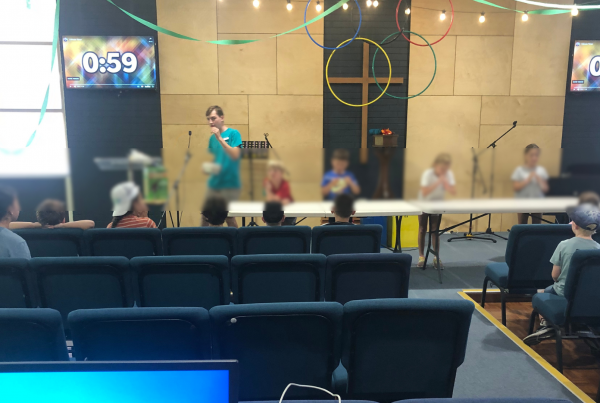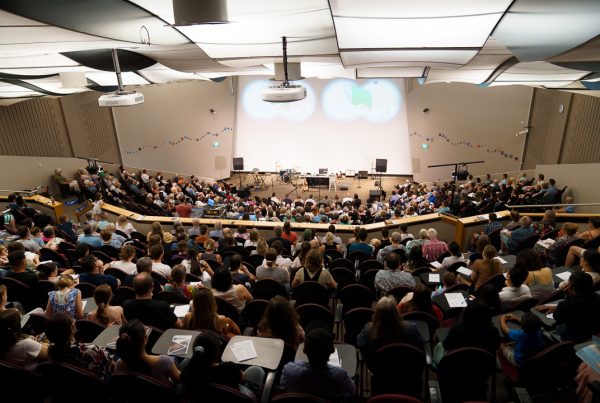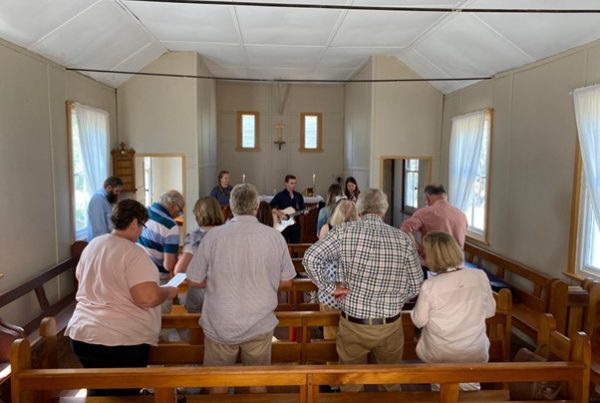This week saw Voluntary Assisted Dying (Euthanasia) legalised in NSW. More than anything, it’s legislation that fills us with sadness. It’s law in response to grief. Rather than relieve sorrow, we should expect VAD’s legality to increase sorrow.
How should we respond?
Our response as believers is to ‘weep with those who weep’ (Romans 12:15). Many who’ve agitated for this change are driven by the experience of watching those they love in suffering. We recognise and honour that their hatred of the world’s brokenness comes from a right desire.
Grieve
With that, we grieve the hopelessness of our society. Our community has no better story to make sense of suffering than to end it – no matter the cost. They don’t know the better story – that God can bring life from death. That the cross has reconciled creation to one day end all suffering and death for those who are in Christ. Even now, He can re-work suffering for spiritual benefit – that it is not wasted.
We grieve the failure to see humanity’s dignity as God’s image. Every person has honour and value because of God himself, not what they produce or can do (Genesis 1:26-27). Our community’s embrace of VAD is a reflection that the value of human life is reduced to their contribution and capacity. It is the ugliness of having to ‘earn your place’ in life. It is this ‘graceless’ thinking that sees many seek euthanasia because they ‘don’t want to be a burden’ (they’ve been stripped of their human self-worth) or, dangerously, seek to euthanise ‘loved ones’ to relieve a ‘burden’.
We grieve that sin has led people to think that our ‘times are in our own hands’, rather than in the hands of our gracious God (Psalm 139:16). We are not our own. God is our maker. It is His choice, not ours, to determine our days. We can admit when death has effectively won and so we withdraw treatments that are unnecessarily burdensome. But we don’t withdraw them because life itself is burdensome (we share in the sufferings of Christ – a hard life is worth living). And we don’t medically intervene to take God’s place and end life.
Everything surrounding VAD is cause for sorrow. The implications are personal (how do we love and encourage those considering this decision?), professional (what action does a believing doctor asked to administer VAD take?) and institutional (how should Anglicare’s retirement villages react to any requests or demands made on them to comply?).
Pray for God’s wisdom
So, alongside our weeping, we pray. Our diocese prepared a helpful response to VAD in the lead-up to such legislation. It highlights the complexity of our situation and our need for God’s wisdom now:
‘Christians consistently oppose the practices of physician-assisted suicide and euthanasia in the strongest terms, as essentially varieties of murder. In addition, these practices raise grave public-policy concerns, especially relating to the care of the vulnerable. The difficulties involved in adequately safeguarding these practices, ensuring transparency, protecting against the corruption of medicine, and the risks they pose to people affected by various kinds of disabilities, are well-documented. The example of Christ’s care for the weakest and most invisible, and the biblical exhortation to give special attention to the weak and the needy (e.g. Matt. 25:31–46), give these considerations a special weight.
[…]When laws are made, therefore, that Christians know to be unjust, we are faced with a complex task of discerning how we may obey God and still honour the authorities God has established (Rom. 13:1). Sometimes this may mean the gracious acceptance of the consequences of the disobedience, as we see with the apostles in the book of Acts (Acts 4:19). At other times it may mean withdrawing from forms of public service that we are no longer able, in good conscience, to undertake. In the context of modern Australia, it often entails negotiation with government to find a pathway to forms of action that are mutually acceptable.’
(from the Report of the Archbishop’s Working Group on Voluntary Assisted Dying, 2023)
In our grief at this legislation, we pray God might give wise discernment – to show the faith, hope and love the gospel alone creates, that we might comfort a weeping community.
In Him,
Mark Smith
Senior Minister | 8am, 9:45am & 7pm





